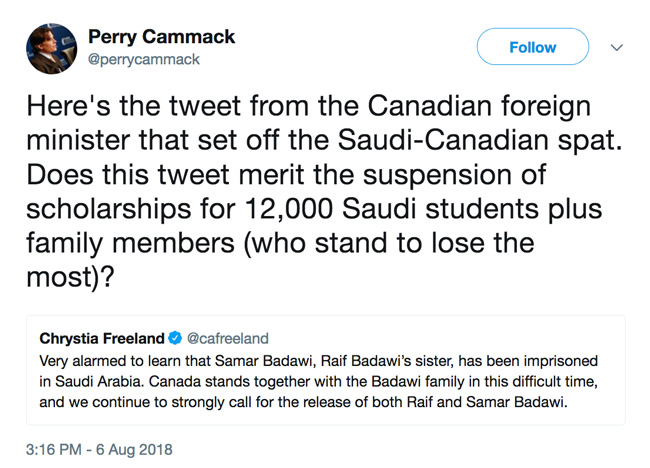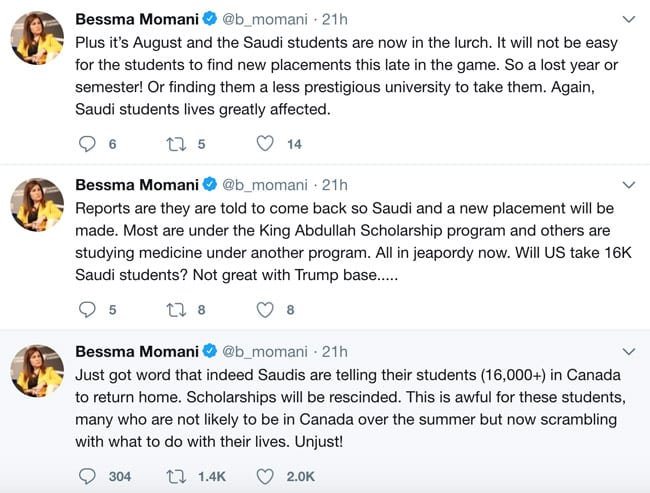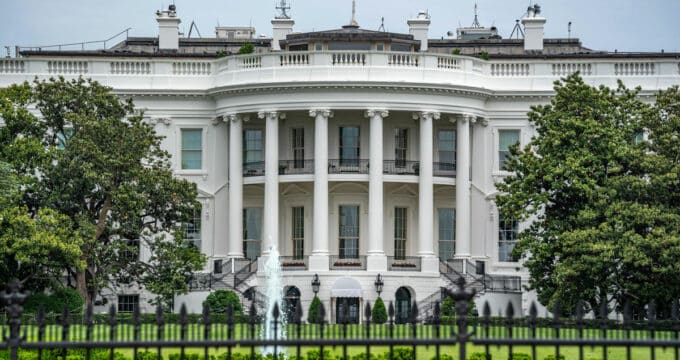Saudi Arabia orders its scholarship students out of Canada
In a move that will disrupt the study programmes of thousands of students, not to mention the fall semesters at many Canadian institutions and schools, Saudi Arabia has ordered its scholarship students to return home from Canada immediately.
The announcement will affect all scholarship students currently enrolled in Canada. The Canadian Bureau for International Education reports that there were just under 10,000 Saudi students in Canada as of 2017, and CNN places the number of current scholarship recipients at 7,000. Both of those numbers are down significantly from even a few years ago when the Saudi government began to wind down the massive King Abdullah Scholarship Programme. The remaining scholarship students have now reportedly been advised to plan to transfer to other countries to continue their studies in the coming academic year.
The move comes amidst a rapidly escalating diplomatic spat between Saudi Arabia and Canada. The Kingdom has accused Canada of “blatant interference” in its domestic affairs. At issue is a August Twitter post by Canada’s Minister of Foreign Affairs, Chrystia Freeland, which objected to the Kingdom’s recent detention of a Saudi activist.

What happens next?
Official government sources from the Kingdom have not yet commented publicly on how current scholarship students will be affected, but the suspension of scholarships has been confirmed via a recent news report on the Saudi-owned Al Arabiya news service, which characterises the decision as a “suspension of training, scholarships, and fellowships to Canada and the transfer all its students in that state to other countries.” An education ministry spokesman has also said, via Twitter, that the government is working on an emergency plan to speed the transfer of students to other study destinations.
Canadian educators, along with Saudi students enrolled in Canada, have been left to absorb these latest developments with less than a month to go before the start of the new academic year.
Bessma Momani is a professor at the University of Waterloo and an analyst on Middle East affairs. In a series of related tweets from 6 August, she sets out in stark terms the situation for both students and their institutions.

Most Recent
-
ICEF Podcast: Together for transparency – Building global standards for ethical international student recruitment Read More
-
New analysis sounds a note of caution for UK immigration reforms Read More
-
The number of students in higher education abroad has more than tripled since the turn of the century Read More
















